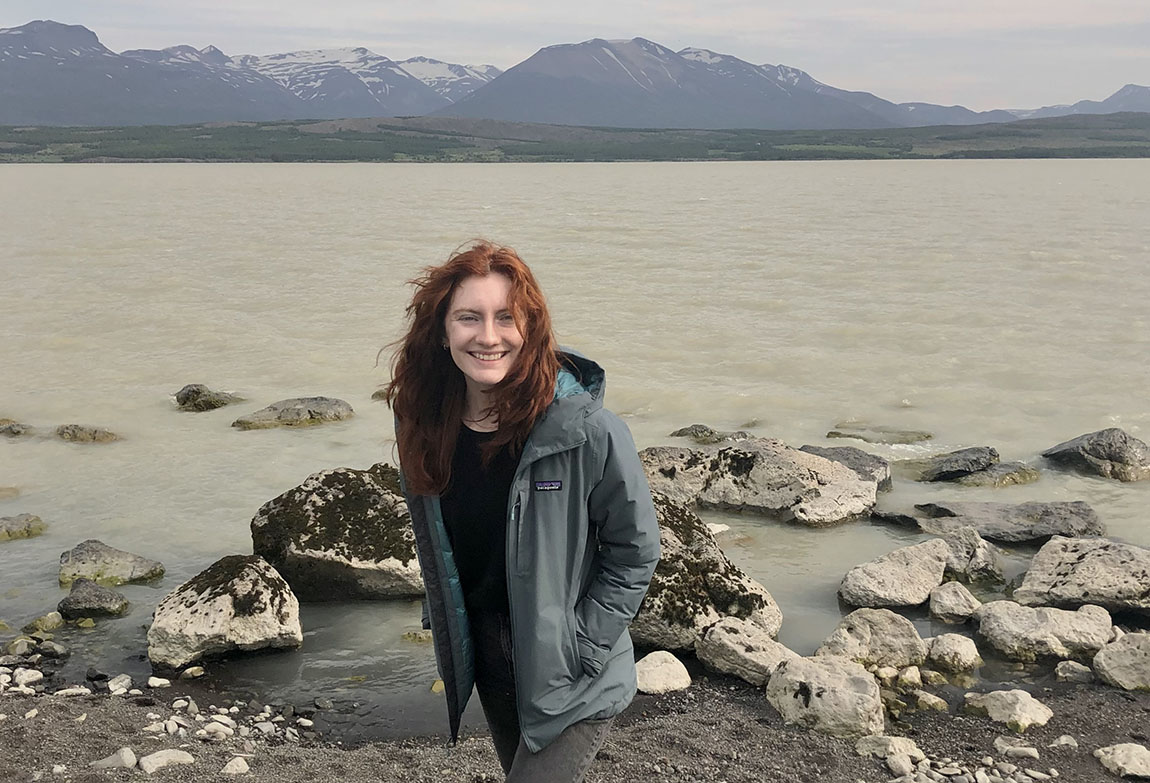Brigid Deegan ’19 Works With Urban Centers to Build Resilience to Extreme Heat
Her role with the National League of Cities involves promoting smarter surfaces such as green spaces, green roofs and rooftop solar to lower urban temperatures and reduce the risk of flooding.By: Meghan Kita Wednesday, August 23, 2023 10:10 AM
 Brigid Deegan ’19 in Eastern Iceland, near Egilsstaðir
Brigid Deegan ’19 in Eastern Iceland, near EgilsstaðirListen to a more extensive interview on the alumni podcast 2400 Chew:
If you read the news, you know that July was the hottest month ever recorded. And even if you didn’t see that particular headline, you’ve likely noticed the exceptionally sweltering nature of this summer.
“Extreme heat is happening basically everywhere,” says Brigid Deegan ’19, a climate resilience senior specialist at the National League of Cities. “Often in my field, we call it ‘the silent killer.’ You see a hurricane coming. You know when a wildfire is happening. But oftentimes, people who die from extreme heat, it could be in the privacy of their own home. You don’t even realize that you’re suffering effects that lead to heat stroke.”
Deegan, who was a political science major and an Italian minor at Muhlenberg, is working closely with five cities as they work to become more resilient to the effects of climate change, including extreme heat. (The mayor of one of the cities she’s working with — Columbia, South Carolina — recently discussed the partnership on NPR.) The National League of Cities is part of the Smart Surfaces Coalition, a group that advocates moving away from dark and/or nonporous surfaces (such as blacktop parking lots) and toward solutions like green spaces, green roofs and rooftop solar in order to reduce the risks of heat and flooding in urban areas.
Deegan’s specific role involves meeting with city staff to understand each location’s specific needs and challenges and to share with them tools and funding guidance to move toward smarter surface options. A challenge in the work is that these solutions can be costly upfront; another part of the project involves a mapping tool showing how the conversion to smarter surfaces would both save cities money over time and cool cities.
Deegan credits an internship she had as a Muhlenberg student with sparking her interest in environmental policy, which she went on to study at The Fletcher School at Tufts University. During grad school, she interned with the United Nations Economic and Social Commission for Asia and the Pacific, her first experience working directly with cities on sustainable development. After earning her master’s, she interned with the Adrienne Arsht-Rockefeller Foundation Resilience Center, which focuses specifically on extreme heat. Her current role, which she began in March, brings those two experiences together.
“What’s most rewarding is working with leading experts in heat adaptation and working with the cities,” Deegan says. “I enjoy engaging with chief resilience and sustainability officers because they care so much about the quality of their work and well-being of the neighborhoods they serve. They know exactly how climate change is impacting their communities, and it’s rewarding to work with them and see a real impact happening, block by block.”
